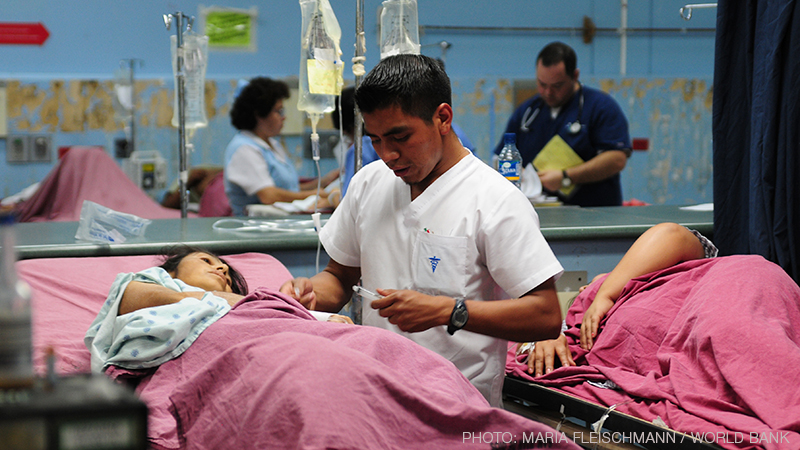
The UCSF Department of Emergency Medicine has been designated as a World Health Organization (WHO) Collaborating Centre for Emergency and Trauma Care. It is the first such designation in the US, and one of only two in the world specifically dedicated to building emergency care systems.
To be designated a WHO collaborating center, an organization must have done at least two years of work with the WHO and show a sustained commitment to the field, according to Renee Hsia, MD, MSc, and Andrea Tenner, MD, MPH, faculty in the UCSF Department of Emergency Medicine and leads in gaining the designation for UCSF. Attaining designation as a collaborating center is a multi-step process that successfully concludes with review and approval by the WHO Director-General.
The designation as a WHO Collaborating Centre provides a formalized relationship between the UCSF Department of Emergency Medicine and the WHO by allowing more streamlined engagement, improving funding opportunities and developing a more formal framework for joint activities.
Emergency and trauma care is an emerging area of focus in global health. Of the approximately 45 million deaths in low- and middle-income countries each year, 54 percent, or 24.3 million, are due to conditions that are potentially addressable by prehospital and emergency care, according to the Disease Control Priorities-3 chapter on Prehospital and Emergency Care, for which Hsia is a contributing author.
“Emergency care can be seen as an effort to prevent avoidable deaths,” said Hsia. “Part of our work is getting people to see that you need to provide access to care when people need it—that is, when there is an emergency. If you don’t provide it, people die.”
“People who have emergency care take it for granted,” Tenner said. “But many countries don’t have the emergency care that we have, and those that have it can’t imagine that other countries don’t. Those that don’t have emergency care don’t know what they are missing,” she added.
Both Hsia and Tenner emphasized that global emergency care is not necessarily about training emergency-medicine specialists, but about providing more basic training in implementing emergency procedures and setting up emergency care areas in healthcare facilities.
Some recent small studies of individual sites that have implemented emergency care have shown significant reductions –15 to 25 percent—in mortality.
“Many of the excess deaths due to trauma and other emergencies have to do with a lack of organization in health facilities rather than an inability to recognize who is the sickest,” Tenner said. “Something as simple as designating a space reserved for the sickest patients can make a big difference.”
The Collaborating Centre’s work with the WHO has focused on developing a basic emergency care course for nurses, general practitioners and trainees to give them basic knowledge of how to quickly assess patients and give acute care.
The Collaborating Centre designation rose in part from a multi-program UCSF Collaborative Group, established in April 2016 to support the WHO’s work in emergency, trauma and acute care. The program promotes all forms of emergency care through research, implementation support and technical advising.
The UCSF Collaborative Group will assist the WHO in further developing tools to improve emergency care including:
- Metrics to evaluate emergency care systems
- Standardized clinical charts for emergency care visits
- Monitoring and evaluation strategies for implementation of the emergency care toolkit
- Assessment of the cost-effectiveness of emergency care systems
- Implementation the Basic Emergency Care (BEC) course
- Digital (e-learning) adjuncts to the WHO BEC course
In addition to Hsia and Tenner, the group includes Catherine Juillard, MD, MPH, director of the Center for Global Surgical Studies, Kimberly Baltzell, MS, PhD, director of the School of Nursing Center for Global Health, and Amy Lockwood, MS, MBA, and Jane Coyne, MMM, from the Center for Global Health Delivery & Diplomacy in the Institute for Global Health Sciences.
“Emergency care is a multidisciplinary endeavor,” Tenner said, “And collaboration is really important.”